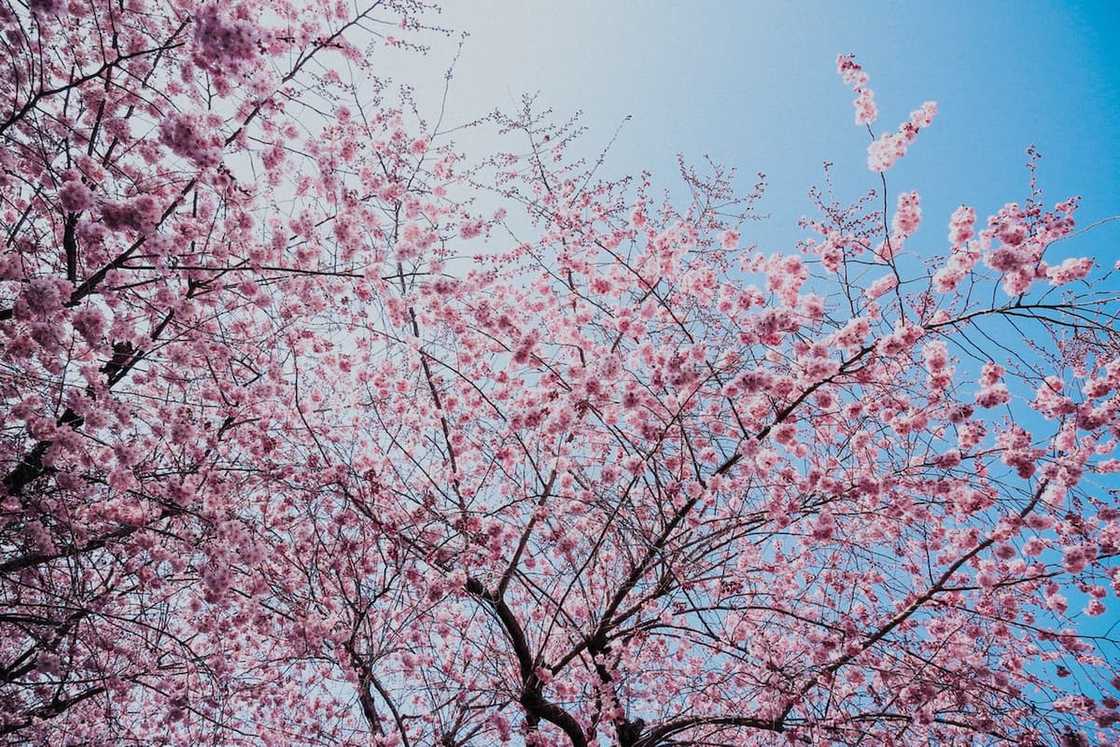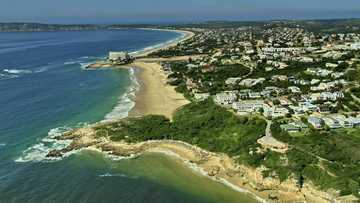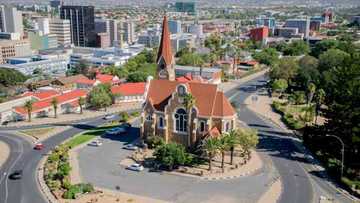Weather and seasons in South Africa: Here's all you need to know
The seasons in South Africa determine which activities can take place during specific times of the year. They affect activities ranging from agricultural practices to the patterns that tourists choose to visit the country. It is therefore wise to enlighten yourself on these patterns of these periods. Here is all you need to know.

Source: UGC
The country's location greatly influences South Africa's climate and the variation in seasons. The country is located in between longitude 22 degrees South and 35 degrees South in the southern hemisphere. It is also situated between the Indian and the Atlantic Ocean. Another factor that influences these seasons is the country’s location in the subtropical zone. Another factor that also affects the weather patterns is the differences in terrain throughout the country. Because of these factors, South Africa experiences four seasons. The seasons are spring, summer, autumn, and winter.
Why are there seasons in South Africa?
The seasons in South Africa are as a result of the earth’s revolution on its axis. The earth is not upright; it is tilted at an angle of 23.5 degrees. The tilt causes the changes in the amount of light that reaches the earth, hence the days and nights. The revolution, on the other hand, causes particular areas to face the sun during the day for specific seasons directly. For instance, for the southern hemisphere, during summer, the earth tends to tilt more to the sun. This revolution explains the longer days and shorter nights, and vice versa. It also explains the variations in temperatures.
READ ALSO: Trevor Noah wants to come home after freezing weather hits the US
The four seasons in South Africa
1. Autumn in South Africa

Source: UGC
Autumn is the most enjoyable season in the country. Autumn in South Africa manifests in the light showers that are in most cases accompanied by heavy clouds. During this season, the country experiences warm shine during the day and moderate rainfalls. The nights during autumn are usually cold. In April, some places experience foggy days since the temperatures drop gradually from the onset of autumn. Another statement characteristic of autumn is the yellow color on branches of trees. The weather during this period is convenient enough for harvesting sugarcane, cotton, and corn. During this season, the highest that the temperatures in Cape Town can reach is 19 degrees Celsius.
When does autumn start in South Africa?
Autumn in South Africa begins in February and ends in April. It lasts for two months. This is the best season in the country as it brings out the country's beauty.
2. Winter in South Africa

Source: UGC
Winter in South Africa occurs when the earth is tilting away from the sun. During this period, there is minimal exposure of the earth to the sun. This explains the low temperature. In some places, the temperatures during winter drops to 0 degrees Celsius at night and at times even rise to 20 degrees Celsius.
South African winters are cold and dry in the northern regions of the country. The southern parts, on the other hand, experience showers during winter. This variation is due to the effect of the ocean currents. The southern region experiences rainfall due to the impact of the warm Agulhas currents. The terrain of this region also influences the rain.
When does winter start in South Africa?
Winter in the country lasts between mid- May all through July.
3. Spring in South Africa

Source: UGC
Spring is the season that follows immediately after winter. This season brings out the shine of the plants. During this season, there are moderate winds. The temperatures during the day are warm, whereas the nights are chilly. The transition from winter to spring manifests itself in a gradual rise in temperatures.
When does spring start in South Africa?

Source: UGC
Are you asking yourself, when is spring in South Africa? If so, the country experiences spring from August all through to September. The country experiences spring for two months.
4. Summer in South Africa

Source: UGC
Summer is as a result of the earth tilting more towards the sun. During this time, the countries that are situated on the northern hemisphere are tilted away from the sun; hence, it is winter for them. As a result, there are longer days and higher temperatures. Summer in South Africa is characterized by a wide gap in the temperature difference in the northern and southern regions. The northern region experiences rainy summers. The southern region experiences hot and dry summers.
During this period, the temperatures range between 15- 35 degrees Celsius. Places like Cape Town experience an average temperature of about 17 degrees Celsius. Others like Durban experience an average temperature of 21 degrees Celsius. The areas whose location is within the eastern coasts tend to be warmer. This warmth results from the effect of the warm Agulhas current and cold Benguela current. Generally, summers for most parts in South Africa are dry, and the levels of precipitation are relatively low.
When does summer start in South Africa?

Source: UGC
The country experiences summer between from October all through to February. Summer is the most extended season in South Africa. It lasts for four to five months. This also explains the reason why tourists flood the country during this season.
Shortest day in South Africa
The variations in the length of day and night result from the earth’s revolution. The longest day in South Africa is experienced when the sun is directly overhead the tropic of Cancer. During this period, the earth is also directly tilted towards the sun. The shortest day in South Africa happens on June 21st every year and is called winter solstice. On this day, the night is longer than the day.
The country experiences the longest day and shortest night on the 21st December. During this day, the earth is directly tilted towards the sun. The sun at this time is over the Tropic of Cancer. This day is known as the summer solstice. On this day, the night is shortest, as the sun rises unusually earlier.
Familiarizing with these seasons in South Africa is a very important aspect. These seasons are the key factors when planning. Whether you are a citizen of South Africa or not, keeping a record of these periods will help you make the right decisions if you wish to visit the country. These records play a significant role for tourists.
READ ALSO:
- Opinion piece: How to save South Africa from a water disaster
- Are rain spiders dangerous?
- Top 10 books that eerily correctly predicted the future
- Cape Town emergency 'Day Zero' drought plans to be announced
Source: Briefly News






